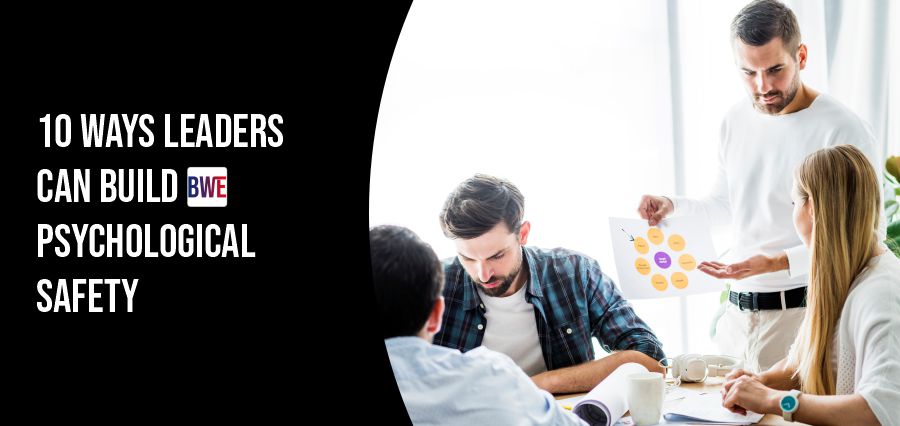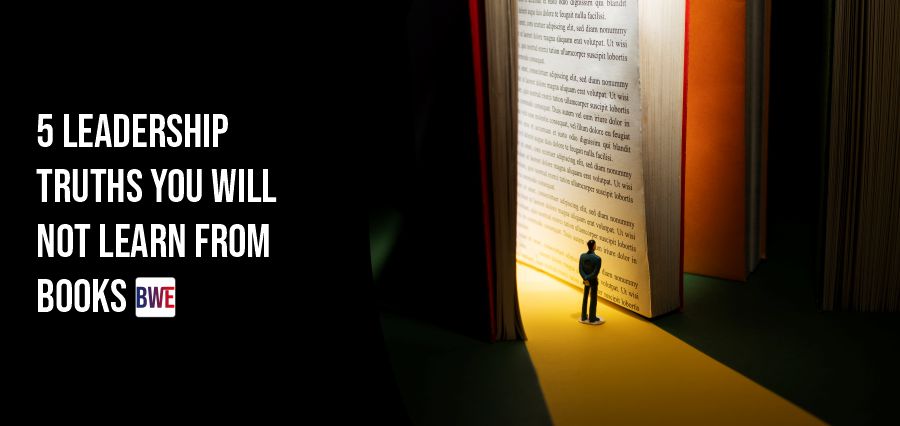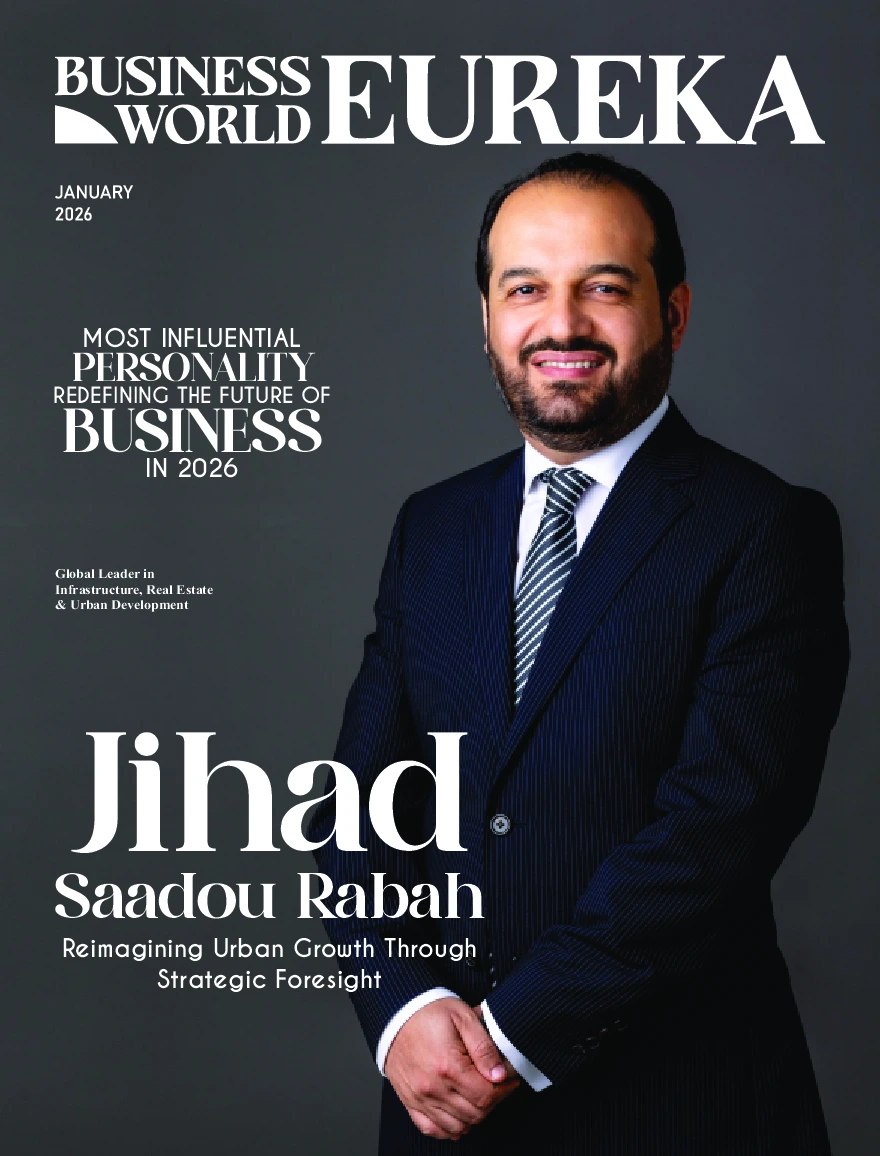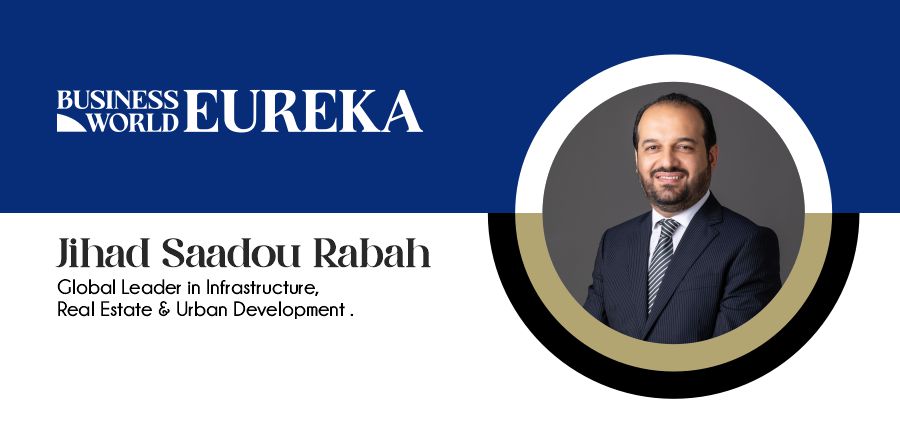Ahmed Bin Mohammad Al-Jarwan: Championing Peace Building Bridges Across Nations

Education is often seen as a path to knowledge, success, and progress. But its true power lies in something deeper, tolerance. As Helen Keller said, “The highest result of education is tolerance.” In a world filled with diverse cultures, beliefs, and perspectives, understanding and accepting differences is what truly defines an educated mind.
In a world where divisions often overshadow unity, fostering peace and tolerance is no easy task. Yet, for Ahmed Bin Mohammad Al-Jarwan, this isn’t just an ideal, it’s a lifelong commitment. As the President of the Global Council for Tolerance and Peace, Ahmed Bin Mohammad Al-Jarwan has dedicated his career to creating a world where understanding triumphs over conflict. With extensive experience in initiating and leading global initiatives, he has been at the forefront of developing strategies that encourage dialogue, mutual respect, and cooperation among nations. His leadership extends beyond words, shaping policies and projects that have a real, lasting impact on communities across the Arab world and beyond.
A firm believer that peace begins with action, Ahmed Bin Mohammad Al-Jarwan has successfully managed numerous international programs aimed at addressing pressing global issues. His ability to bring together leaders, policymakers, and influencers from diverse backgrounds reflects his deep commitment to fostering an environment where tolerance is not just encouraged but actively practiced. Through his work, he has strengthened diplomatic ties, facilitated cultural exchange, and driven initiatives that promote inclusivity and coexistence.
Beyond his role as a leader, Ahmed Bin Mohammad Al-Jarwan is a dedicated advocate for education as a key tool for building a more tolerant society. He has worked tirelessly to integrate peace education into various institutions, ensuring that future generations inherit a world built on understanding rather than division. His initiatives have gained widespread recognition, cementing his reputation as a visionary who turns dialogue into action.
Let us learn more about his journey:
A Global Architect of Tolerance and Peace
Ahmed Bin Mohamed Al Jarwan is the President and Founder of the Global Council for Tolerance and Peace (GCTP), an international organization headquartered in Malta. He also serves as the President of the Arab Experts Union since 2018, the President of the Executive Office of the Arab Federations’ Forum since 2021, and the President of the Fundación for Islamic Culture and Religious Tolerance since 2022. These roles collectively highlight his steadfast commitment to fostering global dialogue, cooperation, and peaceful coexistence.
His journey into this sector has been shaped by a deep-rooted belief in the values of tolerance, intercultural respect, and human dignity. Raised on the principles of peaceful coexistence, he initially served his country as a Colonel Engineer Staff in the UAE Armed Forces and later as Deputy Military Attaché in Washington, D.C., and London. His transition into diplomacy and international parliamentary leadership, including two successive terms as President of the Arab Parliament (2012–2016), was driven by the urgent need to combat extremism, discrimination, and conflict through soft power and inclusive dialogue.
His motivation stems from the conviction that peace is not merely the absence of war but the presence of justice, equality, and mutual understanding. In 2017, he established the GCTP alongside eight prominent international figures to create a global platform where parliamentarians, educators, civil society, and youth could collaborate in the pursuit of peace. Through its two key organs, the International Parliament for Tolerance and Peace (IPTP) and the General Assembly for Tolerance and Peace (GATP), the organization has advanced legislation, education, and diplomacy that promote SDG 16 and the principles of the Human Fraternity Document.
Today, he continues to advance this mission through strategic partnerships with international institutions, national parliaments, academic bodies, and religious leaders, always striving to unite humanity around shared values and build a future where tolerance is not just an aspiration but a global standard.
Personal Journey
Growing up in the United Arab Emirates, a nation renowned for its culture of harmony and coexistence, instilled in him a deep understanding of tolerance from an early age. The country’s founding principles, championed by the late Sheikh Zayed bin Sultan Al Nahyan, shaped not only its governance but also the everyday interactions of its people. Sheikh Zayed’s unwavering belief in unity, respect, and human dignity became a guiding philosophy, emphasizing that true leadership stems from empathy and that lasting peace is built through dialogue, not discord.
In every leadership capacity he assumes, his approach remains anchored in inclusivity and respect. Whether engaging with policymakers, youth, or religious figures, he prioritizes understanding diverse perspectives before formulating solutions. His initiatives within the Global Council for Tolerance and Peace embody this ethos, fostering partnerships that transcend political and ideological boundaries.
The lessons ingrained in him by his homeland continue to direct his efforts in promoting global harmony, where dialogue triumphs over division, and where every individual, regardless of background, has a role in building a more peaceful world.
Identifying Challenges and Strategic Solutions
The pursuit of peace, both in the Arab world and globally, is often obstructed by deeply rooted challenges that have evolved over time. Among the most pressing barriers are sectarian divides, political instability, economic disparities, and the spread of misinformation, all of which contribute to heightened tensions and erode trust among communities.
In the Arab region, unresolved conflicts, external interventions, and the absence of inclusive governance have exacerbated divisions, making reconciliation a complex endeavor. Furthermore, the lack of youth engagement in political and social development has left many feeling disillusioned, creating a vacuum that extremist ideologies seek to exploit.
On a global scale, intolerance, discrimination, and economic inequality continue to fuel discord, making it difficult to foster unity across nations. The challenges posed by refugee crises, systemic injustices, and the weaponization of disinformation have further complicated efforts to build sustainable peace. These issues cannot be addressed with short-term interventions; they require comprehensive, long-term strategies driven by collective action.
To counteract these barriers, leaders must embrace a multifaceted approach rooted in education, diplomacy, and inclusive governance. Strengthening educational programs that promote tolerance and cultural understanding is critical in shaping future generations who value coexistence. Through the Global Council for Tolerance and Peace, various initiatives have been launched to empower youth, enhance legislative cooperation, and encourage academic research on peaceful conflict resolution.
Additionally, ensuring diverse representation in decision-making processes is essential. Women, youth, and marginalized communities must be given active roles in shaping policies that impact their societies. Equally important is fostering international collaboration, where governments and institutions work together to address the root causes of instability rather than merely responding to crises.
True leadership in today’s world is defined not by power but by the courage to foster reconciliation, bridge divides, and prioritize humanity over political gains. It is only through shared responsibility and unwavering commitment that a lasting culture of peace can be established, one that transcends borders and benefits all of humanity.
A Transformative Initiative in Education and Diplomacy
Several factors have contributed to the program’s success:
- Diverse Perspectives and Global Engagement
The program brings together students and faculty from diverse cultural and religious backgrounds, fostering an enriching exchange of ideas. This multicultural environment encourages constructive discussions on coexistence, strengthening the foundation for global peace efforts.
- Practical Learning and Real-World Application
Beyond theoretical studies, students actively participate in high-level peace dialogues, including the sessions of the International Parliament for Tolerance and Peace (IPTP) and the General Assembly for Tolerance and Peace (GATP). These experiences provide them with hands-on exposure to the complexities of diplomacy and conflict resolution.
- Empowering the Next Generation of Leaders
Designed for aspiring leaders, policymakers, and human rights advocates, the program ensures long-term impact by preparing graduates to drive meaningful change in their respective fields, whether in governance, civil society, or academia.
Complementing this academic milestone is the introduction of the Universal Peace Charter (UPC), a groundbreaking initiative outlining a global framework for sustainable peace and mutual respect. Endorsed by international institutions, the UPC serves as a guiding document for legislative advocacy and diplomatic efforts worldwide.
Through these projects, a holistic approach to peacebuilding is realized—one that integrates education, policy-making, and international cooperation. By equipping individuals with the tools to foster understanding and collaboration, these initiatives contribute to a more tolerant and harmonious global society.
Strategies for Effective Collaboration in Peacebuilding
Bringing together individuals with diverse perspectives to work toward a common goal is both a challenge and an opportunity. Effective collaboration in peacebuilding requires a foundation of mutual respect, shared aspirations, and trust. Through his leadership in the Global Council for Tolerance and Peace, he has championed initiatives that prioritize dialogue, diplomacy, and inclusivity, ensuring that differences become strengths rather than obstacles.
A prime example is the International Parliament for Tolerance and Peace (IPTP), a unique platform that unites parliamentarians from over 100 countries. Despite their differing national interests and political ideologies, these leaders come together to advance global efforts in tolerance and peace. Each parliamentary session is structured to encourage open dialogue, consensus-building, and policymaking that reflects diverse perspectives. The objective is not uniformity but constructive discourse, ensuring that every participant feels valued and heard.
Beyond political engagement, the General Assembly for Tolerance and Peace (GATP) serves as another critical forum, bringing together academic scholars, civil society leaders, and non-governmental organizations. This space allows for cross-sector collaboration, where discussions on peace initiatives are translated into actionable projects. By developing partnerships between government institutions and grassroots organizations, these forums ensure that peacebuilding efforts extend beyond high-level diplomacy and reach local communities.
Additionally, cultural diplomacy plays a significant role in uniting people across borders. Inspired by the vision of the UAE’s leadership, he emphasizes the importance of empathy, active listening, and respect for cultural sensitivities in all peace negotiations. By nurturing a culture of collaboration, where individuals feel seen and valued, differences can be transformed into opportunities for progress.
Ultimately, the success of any peace initiative lies not in rigid structures but in genuine intent. When individuals and institutions operate with a shared commitment to humanity’s collective well-being, even the most profound differences can be bridged, paving the way for a more peaceful and inclusive world.
Upholding Peace Amidst Challenges
Throughout his journey, Ahmed Bin Mohammad Al-Jarwan has faced numerous moments that tested his commitment to peace—times when dialogue seemed impossible, tensions ran high, and the very ideals of tolerance were under threat. Yet, it is precisely in such moments that true dedication is defined.
One of the most challenging periods was during his tenure as President of the Arab Parliament (2012–2016), a time of profound instability across the Arab region. Conflicts escalated, political divisions deepened, and hope dwindled. Advocating for peace, unity, and human dignity was not only difficult but often met with skepticism or resistance. However, he remained steadfast, knowing that silence was not an option. He worked to reinstate and activate memberships from divided states, initiated inter-parliamentary dialogue, and focused on humanitarian and reconstruction efforts, particularly for war-affected nations.
Another critical test came with the establishment of the Global Council for Tolerance and Peace (GCTP). Convincing global leaders—each with distinct histories, ideologies, and political interests—to unite around the principles of tolerance required patience, persistence, and diplomacy. Through the power of dialogue, cultural respect, and an unwavering belief in shared human values, he successfully launched the International Parliament for Tolerance and Peace (IPTP) and the General Assembly for Tolerance and Peace (GATP), now comprising members from over 100 countries and 50 academic and civil society institutions.
In overcoming these challenges, Al-Jarwan has relied on three guiding principles:
- Conviction in the cause – Peace is not just an ideal; it is a responsibility.
- Active listening – Understanding opposing views is the first step toward reconciliation.
- Collaboration over confrontation – No sustainable peace can be achieved alone.
These experiences have reinforced his belief that the path to peace is never without struggle, but it is a path worth walking every single day. It demands resilience, humility, and the courage to stand firm in one’s values, even in a divided world.
Measuring Impact: From Policy Change to Cultural Shifts
Assessing the effectiveness of peace and tolerance initiatives requires both quantitative analysis and qualitative insight. At the Global Council for Tolerance and Peace (GCTP), impact is measured across several dimensions, legislation, education, institutional partnerships, and most importantly, shifts in societal attitudes.
- Legislative and Parliamentary Influence: Through the International Parliament for Tolerance and Peace (IPTP), the council tracks policy recommendations, peace resolutions, and legal frameworks influenced or adopted by its members. The integration of tolerance and human rights principles into national laws stands as a significant measure of success.
- Educational Programs and Leadership Development: The Master’s Program in Tolerance Studies and Global Peace has been instrumental in training a new generation of peacebuilders. Success is measured through student research, post-graduation contributions, and community-driven peace initiatives led by alumni.
- Publishing and Knowledge Dissemination: Publications such as Paths to a Culture of Tolerance and Peace serve as academic and policy references, guiding institutions and governments in creating inclusive societies. The upcoming book Fostering Refugee Resilience: Global Perspectives on Integration, Inclusion, and Prosperity links peacebuilding with humanitarian development. The reach and application of these works in educational curricula and policy discussions mark their impact.
- Community Engagement and Global Forums: Participation in key events—such as the Human Fraternity Document Symposium and the Youth and Peace Forum in Comoros—offers direct insight into evolving mindsets. Post-event evaluations and community-level implementations further indicate shifts in discourse and collaboration.
- Institutional Expansion and Global Reach: With membership extending to over 100 countries and 50 academic and civil society institutions, GCTP’s growth underscores the increasing relevance of its mission. New alliances, MOUs, and the endorsement of the Universal Peace Charter signify systemic influence.
- Narratives of Change: Testimonials, reports, and case studies from students, policymakers, and grassroots organizations provide qualitative evidence of transformation, revealing how education, legislation, and dialogue foster long-term cultural change.
Ultimately, impact is about planting seeds of peace in both minds and institutions—nurturing them into lasting legacies.
Education as a Pillar of Peacebuilding
Education remains one of the most powerful tools for shaping a peaceful and tolerant world. It challenges ignorance, dismantles prejudice, and cultivates dialogue, empathy, and cooperation. For lasting peace to be achieved, minds must first be transformed—and that transformation begins in classrooms, academic institutions, and cross-cultural exchanges.
At the heart of the Global Council for Tolerance and Peace (GCTP) is a commitment to education. The council has integrated learning strategies into its global initiatives, starting with the launch of the Master’s Program in Tolerance Studies and Global Peace, a pioneering academic effort designed to equip future leaders with the knowledge and skills to mediate conflicts, promote dialogue, and uphold human rights. This program provides not just theoretical insights but also hands-on engagement through GCTP’s international activities, including IPTP and GATP.
Beyond higher education, GCTP has developed accessible educational resources, such as the “Tolerance and Peace Toolkit” for young students and the “Voices of Unity” booklet, which compiles global youth reflections on peace. These materials instill core values from an early age, ensuring that education extends beyond academic knowledge to include ethical responsibility.
GCTP’s scholarly contributions further strengthen this mission. The widely referenced Paths to a Culture of Tolerance and Peace book series provides practical frameworks for policymakers and academics, while the forthcoming Fostering Refugee Resilience volume explores how education can drive social inclusion and cohesion.
Interfaith and intercultural dialogues are also central to GCTP’s approach. Through symposiums, workshops, and regional forums, individuals from diverse backgrounds engage in critical reflection and joint problem-solving, transforming education into an interactive and transformative experience.
For Ahmed Bin Mohammad Al-Jarwan, education is not just a tool but a long-term strategy for peacebuilding. It shapes both individual perspectives and systemic policies, encouraging a world that values dialogue, critical thinking, and mutual respect.
Navigating Complex Conflicts
One of the most challenging situations Ahmed Bin Mohammad Al-Jarwan navigated was during his tenure as President of the Arab Parliament (2012–2016), a period marked by political fragmentation, civil conflict, and rising sectarian tensions in the Arab region. With multiple member states embroiled in conflicts or facing internal instability, cooperation among delegations was fragile.
Rather than resorting to political confrontation, Al-Jarwan implemented a multi-layered strategy rooted in dialogue, neutrality, and confidence-building:
- Creating Safe, Neutral Platforms: He convened parliamentary sessions in neutral and symbolically supportive locations outside the Parliament’s headquarters, including Jordan, Bahrain, Djibouti, and Tunisia. This approach helped rebuild trust among states and demonstrated respect for national sensitivities.
- Focusing on Shared Humanitarian Priorities: By shifting discussions toward non-political issues such as reconstruction, humanitarian relief, refugee protection, and youth empowerment, he fostered unity without forcing premature political consensus.
- Engaging Stakeholders through Inclusive Dialogue: Al-Jarwan ensured that all member states—regardless of political alignment—had representation in key committees such as Foreign Affairs, National Security, and Human Rights. Through direct engagement with opposing representatives, he facilitated compromise solutions anchored in common interests.
- Building Strategic International Alliances: He forged partnerships through Memoranda of Understanding with organizations such as the League of Arab States, the African Union, and UNESCO, lending legitimacy and support to mediation efforts within broader regional frameworks.
- Maintaining a Vision Beyond the Crisis: Throughout this period, he consistently communicated a vision of a unified Arab future built on development, youth engagement, and tolerance. His belief that peace is not merely an end to conflict but a foundation for growth guided his approach.
The result was a renewed sense of cohesion within the Arab Parliament, stronger regional diplomatic channels, and the groundwork for sustained dialogue. This experience later inspired him to establish the Global Council for Tolerance and Peace, an independent global platform dedicated to creating these values internationally.
Overcoming Setbacks and Opposition
Resilience in peacebuilding is not just about enduring challenges, it is about moving forward with conviction, even when progress is slow. Throughout his journey, from leading the Arab Parliament to founding the Global Council for Tolerance and Peace, Ahmed Bin Mohammad Al-Jarwan faced political resistance, ideological divisions, and skepticism toward the message of tolerance itself.
His resilience stems from an unwavering belief in the transformative power of peace and a sense of purpose that transcends personal or political obstacles. Inspired by the legacy of the late Sheikh Zayed bin Sultan Al Nahyan, he embraces unity, patience, and wisdom as essential forces of progress.
To maintain resilience in the face of opposition, he employs several key strategies:
- Returning to Purpose
By consistently revisiting the core mission—serving humanity—he draws strength and clarity, ensuring that temporary setbacks do not overshadow long-term goals.
- Building Alliances, Not Walls
Even in the face of resistance, he seeks dialogue, engages differing perspectives, and transforms adversaries into partners through shared objectives.
- Celebrating Small Victories
Recognizing that peacebuilding is incremental, he values each signed MoU, educational milestone, and trained young leader as a step toward lasting change.
- Drawing Strength from Others
The dedication of parliamentarians, educators, students, and grassroots leaders fuels his commitment to the mission, reinforcing the collective nature of peacebuilding.
- Leaving a Legacy, Not Just a Policy
Al-Jarwan believes that peace initiatives are not merely about addressing present-day challenges but about laying the groundwork for future generations. This long-term vision sustains his patience and determination.
Peacebuilding is not for the faint-hearted. With vision, unity, and persistence, he remains confident that even the most entrenched resistance can be overcome, paving the way for a more just and tolerant world.
Empowering Youth
Ahmed Bin Mohammad Al-Jarwan firmly believes that youth are not just the beneficiaries of peace, they are its most powerful architects. Investing in young leaders is a strategic step toward securing a future built on tolerance, justice, and inclusion. Through the Global Council for Tolerance and Peace (GCTP), he has made youth engagement a cornerstone of his mission, ensuring that young people are equipped with knowledge, voice, responsibility, and opportunity.
Key initiatives include:
- Education and Capacity Building: The launch of the Master’s Program in Tolerance Studies and Global Peace provides young leaders with the academic foundation, diplomatic tools, and ethical perspective needed to lead peacebuilding efforts in their countries. Many graduates have gone on to initiate community projects, join diplomatic circles, or train others in conflict resolution and human rights.
- Youth-Focused Publications: Resources such as the “Tolerance and Peace Toolkit” for students and the “Voices of Unity” booklet offer young people a platform to share their reflections on coexistence and peace, nurturing a sense of ownership over the global peace narrative.
- Global Youth Forums: Events like the Youth and Peace Forum in the Union of Comoros bring together young leaders, parliamentarians, and educators to discuss their role in shaping peaceful societies. These forums serve as incubators for long-term impact.
- Integration into International Dialogue: Through the General Assembly for Tolerance and Peace (GATP), youth representatives from universities and NGOs actively participate in global sessions, ensuring their voices are heard at the highest levels of international cooperation.
- Mentorship and Recognition: Al-Jarwan prioritizes meeting with young changemakers, mentoring them, and publicly celebrating their achievements. By recognizing their contributions, he encourages them to take an active role in shaping the future of peacebuilding.
By equipping youth with education, platforms, and encouragement, Al-Jarwan is not just preparing them for the future, he is inviting them to lead it. His role is not only to guide but to listen, ensuring that their energy and vision shape the global agenda for tolerance and peace.
A Vision for the Future
Technology, when guided by ethical intentions, possesses immense potential as a force for peace. In an increasingly interconnected world, it serves as a powerful tool for spreading awareness, mobilizing communities, and amplifying voices that advocate for tolerance, justice, and human dignity.
Social media, in particular, has revolutionized communication. It has the power to expose injustice, connect people across cultural and geographic divides, and inspire collective action for good. However, it also carries risks—misinformation, polarization, and hate speech can easily undermine the very values it seeks to promote. Ahmed Bin Mohammad Al-Jarwan believes that the future of technology in peacebuilding depends on intentional design, responsible use, and global cooperation.
At the Global Council for Tolerance and Peace (GCTP), significant steps have been taken to integrate technology into peace initiatives:
Thought Leadership and Research
GCTP published the manual “Ethics in AI,” which explores how emerging technologies, especially artificial intelligence, can be developed and utilized in ways that uphold the values of the Universal Peace Charter. This work encourages governments, educators, and developers to adopt a human-centric approach that protects rights and fosters inclusion.
- Digital Platforms for Dialogue: Conferences, General Assembly sessions, and educational programs increasingly leverage virtual platforms to reach broader audiences—particularly youth and communities in conflict-affected areas. This approach has helped bridge divides and sustain cross-cultural dialogue, even during times of physical separation, such as the COVID-19 pandemic.
- Countering Extremism Online: An upcoming book chapter, “Leveraging Innovation and Technology to Combat Extremism,” outlines strategies for using social media algorithms, digital education campaigns, and AI moderation tools to prevent the spread of hate and radicalization. These efforts simultaneously promote narratives of empathy, coexistence, and shared humanity.
- Empowering Young Digital Voices: GCTP actively encourages youth to become digital ambassadors for peace, supporting them in creating online content, dialogues, and campaigns that promote inclusion, counter prejudice, and celebrate diversity.
Al-Jarwan envisions a future where technology becomes an ally to diplomacy, where virtual reality teaches empathy, AI detects early signs of hate speech, and digital platforms connect communities divided by geography or ideology.
However, this vision can only materialize with leadership, regulation, and values. Peacebuilding must be integrated into technological design, and tolerance must be embedded into the digital experience. Leaders must shape the moral architecture of the digital world, just as they shape physical institutions of peace.
Aligning Leadership with Community Aspirations
True leadership is not about imposing a vision, it is about listening, learning, and co-creating a shared future. Ahmed Bin Mohammad Al-Jarwan’s vision for peace has always been guided by the voices of the people he serves, communities affected by conflict, youth yearning for inclusion, and nations striving for justice and dignity.
At the Global Council for Tolerance and Peace (GCTP), dialogue with communities remains the foundation of every initiative. Whether drafting policy recommendations, launching educational programs, or developing international frameworks like the Universal Peace Charter, GCTP ensures that efforts are informed by local realities, cultural contexts, and lived experiences.
- Participatory Leadership: Through platforms such as the General Assembly for Tolerance and Peace (GATP) and the International Parliament for Tolerance and Peace (IPTP), stakeholders from diverse sectors, including civil society, academia, youth, and religious leaders—collaborate to ensure that strategies reflect real-world challenges and aspirations, rather than abstract ideals.
- Field Engagement and Community Forums: Al-Jarwan personally engages with communities during regional visits and forums across Africa, Latin America, the Arab world, and Europe. During the Youth and Peace Forum in the Union of Comoros, for instance, local youth and leaders were directly involved in shaping responses that aligned with their cultural and social landscape.
- Educational Empowerment as a Reflection of Community Voices: GCTP’s Master’s Program in Tolerance Studies and Global Peace was designed not only to teach global best practices but to incorporate diverse perspectives, allowing students to reflect the needs of their own communities in their research and peace initiatives.
- Feedback and Evaluation Mechanisms: Following major initiatives, whether publications such as “Fostering Refugee Resilience,” training programs, or peace dialogues—GCTP actively collects feedback and success stories to refine its approach. Peacebuilding is viewed not as a fixed roadmap but as an evolving partnership.
- Cultural Respect and Localization: Approaching each community with humility, GCTP respects local customs, languages, and traditions. The peace vision is adaptable, inclusive, and culturally sensitive, recognizing that peace must grow from the ground up, not be imposed from the top down.
Ultimately, Al-Jarwan believes that a vision only becomes impactful when rooted in empathy and partnership. This approach continues to shape a global peace movement that belongs to everyone.
Explore more insightful articles, interviews, industry news, and business magazines on our website. Click here to stay informed and inspired!
-
06 Feb 2026 Digital VersionMost Influential Personalities Redefining the Future of Business in 2026
-
05 Feb 2026 UncategorizedJihad Saadou Rabah: Reimagining Urban Growth Through Strategic Foresight
-
 05 Feb 2026 Uncategorized10 Ways Leaders Can Build Psychological Safety That Transforms Teams
05 Feb 2026 Uncategorized10 Ways Leaders Can Build Psychological Safety That Transforms Teams -
 05 Feb 2026 Uncategorized5 Leadership Truths You Will Not Learn From Books
05 Feb 2026 Uncategorized5 Leadership Truths You Will Not Learn From Books -
 05 Feb 2026 magazinesMost Influential Personality Redefining the Future of Business in 2026
05 Feb 2026 magazinesMost Influential Personality Redefining the Future of Business in 2026 -
 28 Jan 2026 ArticlePappedeckel Material Guide: Advanced Packaging Innovation and Applications
28 Jan 2026 ArticlePappedeckel Material Guide: Advanced Packaging Innovation and Applications -
22 Jan 2026 UncategorizedThe Five Data Problems That Could Break Healthcare AI
-
12 Jan 2026 ArticleTom Welling Net Worth 2026 | Career & Earnings Breakdown




